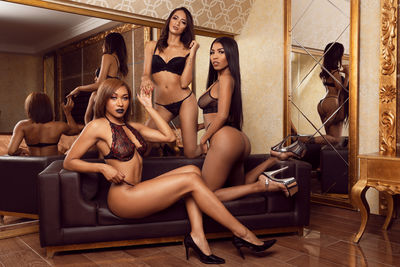
WEIGHT: 47 kg
Breast: Large
1 HOUR:130$
Overnight: +70$
Services: For family couples, Bondage, Tantric, Toys, Humiliation (giving)
They moved to Lille , where she worked in a textile mill until she was around twenty-two years old. After leaving the mill, she may have been a sex worker before moving to Paris around , where she began to manage restaurants and bars. Around , Dumont took over management of La Souris , turning it into one of the most famous clubs for lesbians and wealthy patrons. In , she opened Palmyr's Bar across the street from the Moulin Rouge.
The bar prospered and was expanded during her ownership. Dumont and her French Bulldog became featured subjects in lithographs and sketches created by Henri de Toulouse-Lautrec in the s.

The two bars that she ran catered to gay and lesbian clients and were frequently discussed in court and police documents, as well as in literary publications and memoirs. As an entrepreneur, she hired entertainers and hosted events that not only provided entertainment and employment for members of the LGBT community, but also helped create tourism and commerce which benefited the Parisian economy.
Dumont's work as an entrepreneur was instrumental in the social history of lesbian Montmartre, and her businesses are studied to understand the establishment and development of lesbian and gay businesses in modern Paris. She came from a working-class background that included a long line of tavern keepers and brewers. She had family members on both sides of her family who were brewery workers, including her father. By , Dumont was living in Paris, as she became one of the first members of the French Bulldog-Owners Club, which was organized that year.

Homosexuality had been decriminalized in France during the French Revolution , and a law of opened free trade to businesses selling alcohol. The loosening of restrictions resulted in a rise of business opportunities in the entertainment sector for gay and lesbian business owners at the end of the nineteenth century. Patrons of bars and entertainment venues could not be arrested for homosexual behavior, but they could and were targeted for public obscenity, corruption, solicitation, or failing to register as a prostitute with the state.

































